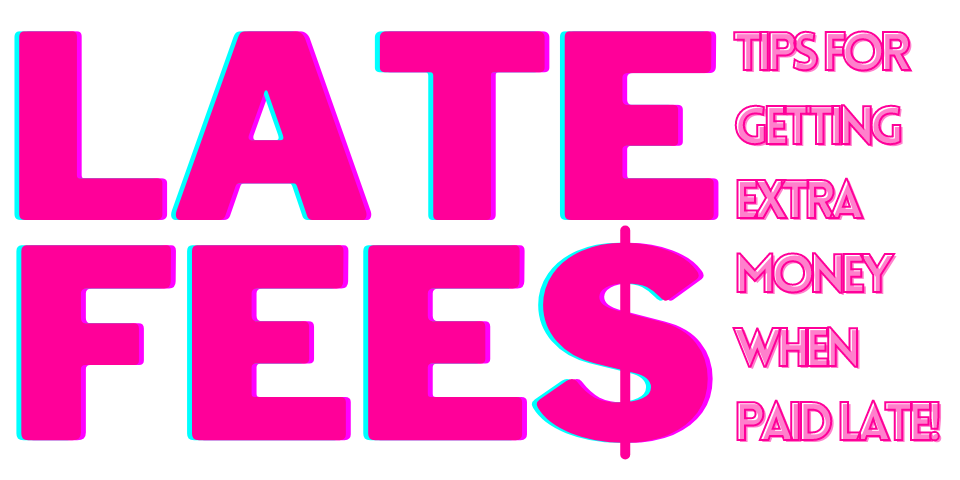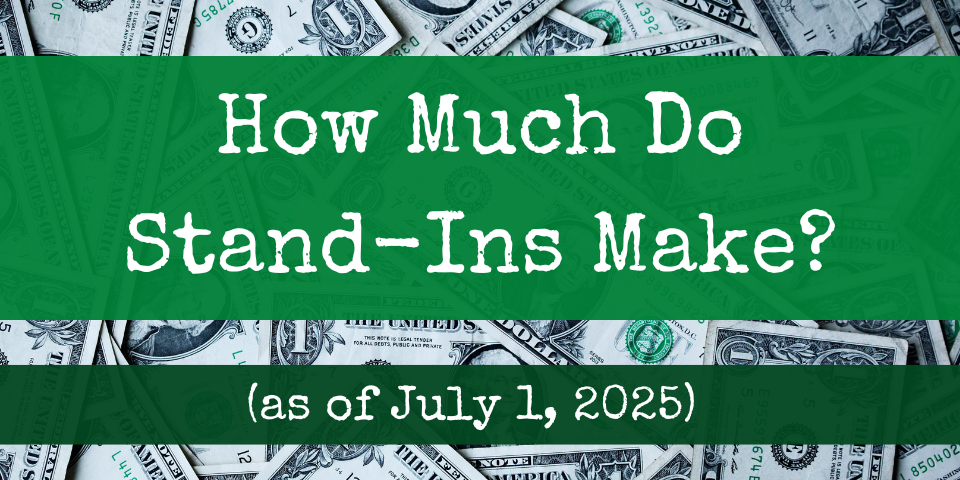From time to time, you may find yourself in a special position when casting calls you to check your availability to stand in on a project that is upcoming. You may even be led to believe that once that project begins, you’ll work regularly on that project as a particular actor’s stand-in.
If you like the idea of steady income for a period of time, of working with a particular cast or crew member, or of working on a particular project, you may grow excited about the future job — and even a bit attached to the pending job. You may make changes to your schedule based on the prospects of this job, and you may even make financial decisions based on these prospects.
However, based on experience, it is better to keep your expectations low when it comes to these stand-in arrangements and to keep from being attached to the job in the buildup to its start. Here is some general advice when you are lined up to stand in on an upcoming television show or film.
The Realities
When it comes to film and television, there are a number of political, interpersonal, aesthetic, and logistical factors that can affect who ultimately lands jobs and who ultimately keeps them.
Political Factors
In terms of political factors, a higher-up cast or crew member may have pull in hiring particular workers, including stand-ins. Of course, this can be a very good thing when you are on the recipient end of this kind of politics, and it may aid in feeling protected when you land such a job. However, it can work against you should someone have enough pull that you don’t get the stand-in job.
For instance, you may have stood in for an actor on a film before. That may position you well with casting to stand in for the actor on this upcoming project. However, perhaps that actor is bringing a stand-in to this upcoming production, one with whom the actor worked recently on another project. Production or casting may not have known this when they lined you up.
You are unlikely to lock in the job in this kind of arrangement, and any expectations you may have developed about the future work would likely be dashed.
Interpersonal Factors
On the whole, relationships matter in television and film. Particular crew members may work regularly with other crew members, and if you are networked in with them, you may end up working across many of their productions as a stand-in. Of course, you might be victim to a network of crew members who don’t know you, which may lead to another stand-in getting the job in the end.
Interpersonal factors tend to be evident on productions wherein the stand-ins look nothing like their actors. On such sets, it may be that the crew likes to work with these particular stand-ins; that they look dissimilar to their actors matters little to none in their filmmaking process.
This is to say that while casting may line you up for a job, if a particular crew prefers to work with a set of stand-ins they have used before, you may lose out on your job, dashing your expectations for work.
Aesthetic Factors
Aesthetics also affect who lands stand-in jobs. You might resemble an actor and may have been lined up for that reason, only to find out on the first day of shooting that the actor has a different hair color than you, different hair style, or different body shape.
While you might be able to do something about these differences, production may be unwilling to go in your direction and instead choose to go in the direction of a stand-in with a more evident resemblance.
Logistical Factors
Sometimes, stand-ins are lined up for projects and think they are as good as gold to work on the project — only to learn there will be a camera test and a stand-in interview.
An interview tends to imply that you don’t “have” the job but that you must be looked at along with other candidates before securing the stand-in job.
Jumping through the hoop of an interview could mean you may or may not land the stand-in job. Furthermore, if you end up not being available for the surprise interview, your long-term stand-in job may be in jeopardy.
What Happens When You Get Attached
When casting lines you up to stand in on a future job, it is understandable to have some expectations about the future work and to be careful about scheduling conflicts during the projected shoot time.
However, developing such expectations may come with emotional risk. When you start to expect the future work, you more or less get “attached” to the project, and it starts to feel like “yours” or “your own.” When you start using personal pronouns to imply ownership over a job, should the job be given to someone else, you may feel understandably upset over the lost possession. Emotionally, it may distress you if you are particularly attached, and financially it may distress you if you made purchases counting on that money.
How to Manage Your Expectations Regarding Future Stand-In Work
Knowledge is power, so the more you know that outside factors may affect whether you ultimately land a future stand-in job, the more appropriate you’ll set your expectations so that you’re not ruined should you not ultimately land the job.
In general, follow these tips:
- Avoid making purchases or investments based on the projected income of the job. If you don’t get the job, you may not be able to support such purchases. If you get the job but it doesn’t work as much as you had thought it would, similarly, you may be unable to support such purchases.
- Avoid talking with certainty about the future job. When you say things like, “I’m going to be standing in on this upcoming film for this particular actor,” you speak with a level of certainty that you cannot support. In truth, you don’t know for sure that you will be standing in on that project for that actor. Instead, you only know that you’ve been lined up for the project. So it is more appropriate to say something like, “I’ve been lined up by casting to stand in on this upcoming film for this particular actor.” It may be even better to say something more like, “I may be standing in on this upcoming film for this particular actor.” In expressing yourself that way, you speculate rather than know, and when you speculate, mentally you operate with lower expectations than when you speak with certainty.
- If you mark the days of the shoot in your planner, mark a few days before them as possible camera test/interview days. When you do that, you keep open to the possibility that a surprise camera test or interview may be offered to you. When another job is presented to you on days that might be a camera test or interview, you may be careful to take that work or not. If you have questions on whether there will be a camera test or interview, call the casting director. Keep in mind that the casting director may not know — or may not know until very close to the start of shooting.
- Remind yourself that you probably should not feel you “have” the job at least until you’ve been on the job a few solid days. Stand-ins may be replaced at a moment’s notice, so even if you make it to the first day of shooting, things could happen such that you don’t keep the job. However, if you’ve survived the first few days of shooting without problem, there is probably an arguable chance you’ll keep the job. This is not a fact, of course, but it may encourage you to be more confident that you “have” the job. Just note that you never really “have” the job even when casting has lined you up for it, given that there are outside factors that could affect that outcome.
Conclusion
If you’ve been standing in for a number of years, from time to time you will lose out on a job you had expected. The better able you are to manage the bumps in the road, the sooner you’ll be able to rebound and continue your journey.
How do you handle when casting lines you up for possible stand-in work on a future television show or film? How badly have you been let down? Share your experiences below!






Leave A Comment